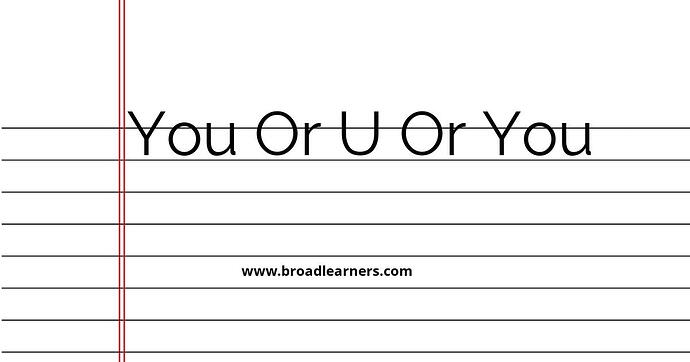'You' and 'u' are commonly confused words in English grammar. Understanding the difference between 'you' and 'u' is important to use them correctly in written and spoken English.
'You' is a pronoun that is used to refer to the person or people being spoken or written to. It is the standard and correct form of addressing someone in English.
'U' is an informal and abbreviated form of 'you'. It is often used in casual conversations, text messages, and social media platforms where character limits or informal language are common.
Let's take a closer look at the meanings and usage of 'you' and 'u'.
| 'You' | 'U' |
|---|---|
| The word 'you' is the standard and correct form of addressing someone. | The letter 'u' is an informal and abbreviated form of 'you'. |
|
|
To remember the difference between 'you' and 'u', it is important to use the correct form depending on the context and level of formality. In formal writing or professional communication, it is best to use 'you'. In casual conversations or informal writing, 'u' can be used.
Here are some examples of correct usage:
- Thank you for your help. (formal and polite)
- U did a great job! (informal and casual)
- Can you please send me the report? (formal and polite)
- Did u see the new movie? (informal and casual)
Remembering the correct usage of 'you' and 'u' will improve your grammar and communication skills in different contexts.
